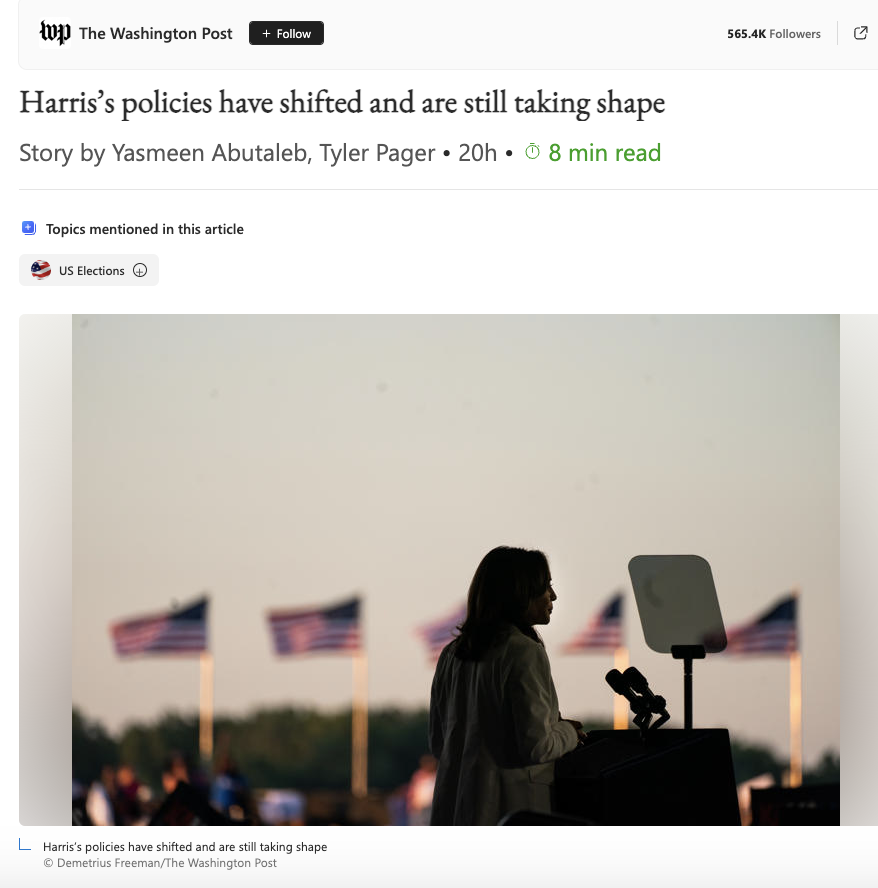Details don't matter, feelings do!
/Kamala Harris, amid a furious battle for the Democratic presidential nomination in 2019, embraced a ban on fracking and offshore drilling. She supported Medicare-for-all. At one point, she advocated abolishing private health insurance. And she signaled an openness to a sweeping overhaul of the U.S. Immigration and Customs Enforcement agency.
Now, the vice president’s campaign says she would not pursue the fracking and offshore drilling ban — it’s a highly unpopular position in states like Pennsylvania where natural gas drives the economy — if she becomes president. She does not support a single-payer health-care system, instead focusing on what she and President Joe Biden call “corporate price-gouging” by pharmaceutical companies. And she is taking a much harder line on illegal immigration, arguing that Republicans are to blame for blocking a tough border-control measure this year.
Since Harris catapulted to the top of the Democratic ticket less than a month ago, she has been forced to reiterate that she rejects a wide array of positions she embraced five years ago, a dynamic likely to become even more evident as she rolls out pillars of her agenda in coming days. On Friday in North Carolina, she is set to outline her economic plan, which is expected to largely mirror Biden’s efforts to lower costs for middle-class families, including by curtailing late fees, hidden costs and junk fees. But Harris’s aides stress that she will roll out myriad policies that are unique to her.
In 2019, Harris articulated a series of liberal positions as she sought to distinguish herself among a crowded group of Democratic contenders, many of them tacking to the left to court voters in the primaries. Now her singular focus is taking on Republican nominee Donald Trump, with a big emphasis on winning over swing voters.
But Harris’s critics say her dramatic shifts on so many issues point to a deeper issue — that Harris has few core political beliefs and only a vague governing philosophy. That lack of a clear political identity, Republicans contend, gives them an opening to frame her image for voters.
“It’s clear the Kamala Harris who wanted to ban fracking, who supported Medicare-for-all … couldn’t win Pennsylvania or a single swing state,” said Corry Bliss, a Republican campaign consultant. “The average voter does not have a well-defined vision of her, so we have a great opportunity to define her simply on her record.”
John Anzalone, a Democratic pollster who worked for Biden, said a broad message is far more important than gritty policy details.
“What is driving the contrast is Harris talks about that she’s going to be for everyone and for the middle class, while Trump is going to be for himself and corporations,” Anzalone said. “That’s the big umbrella message, and all the policies are underneath it.”

